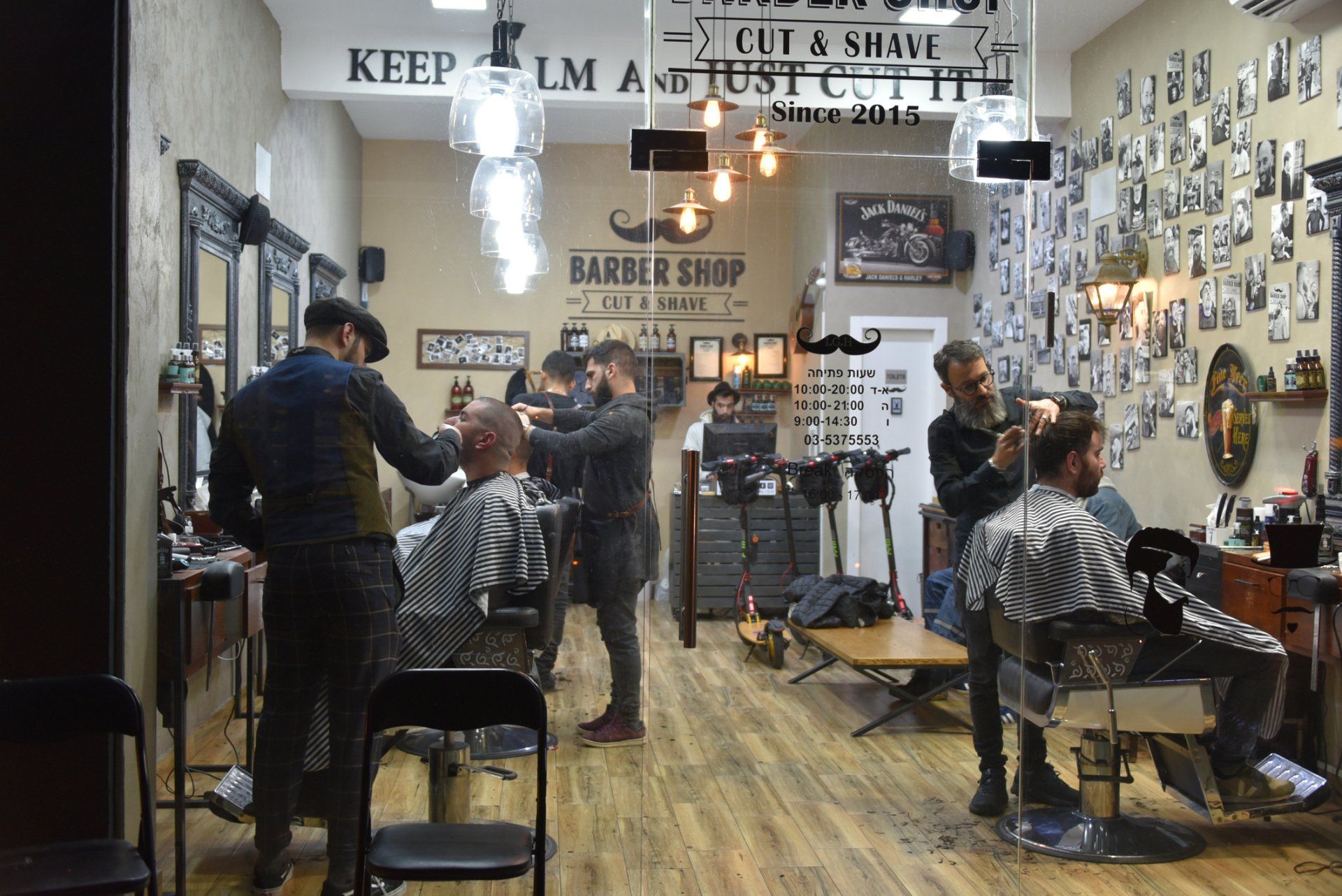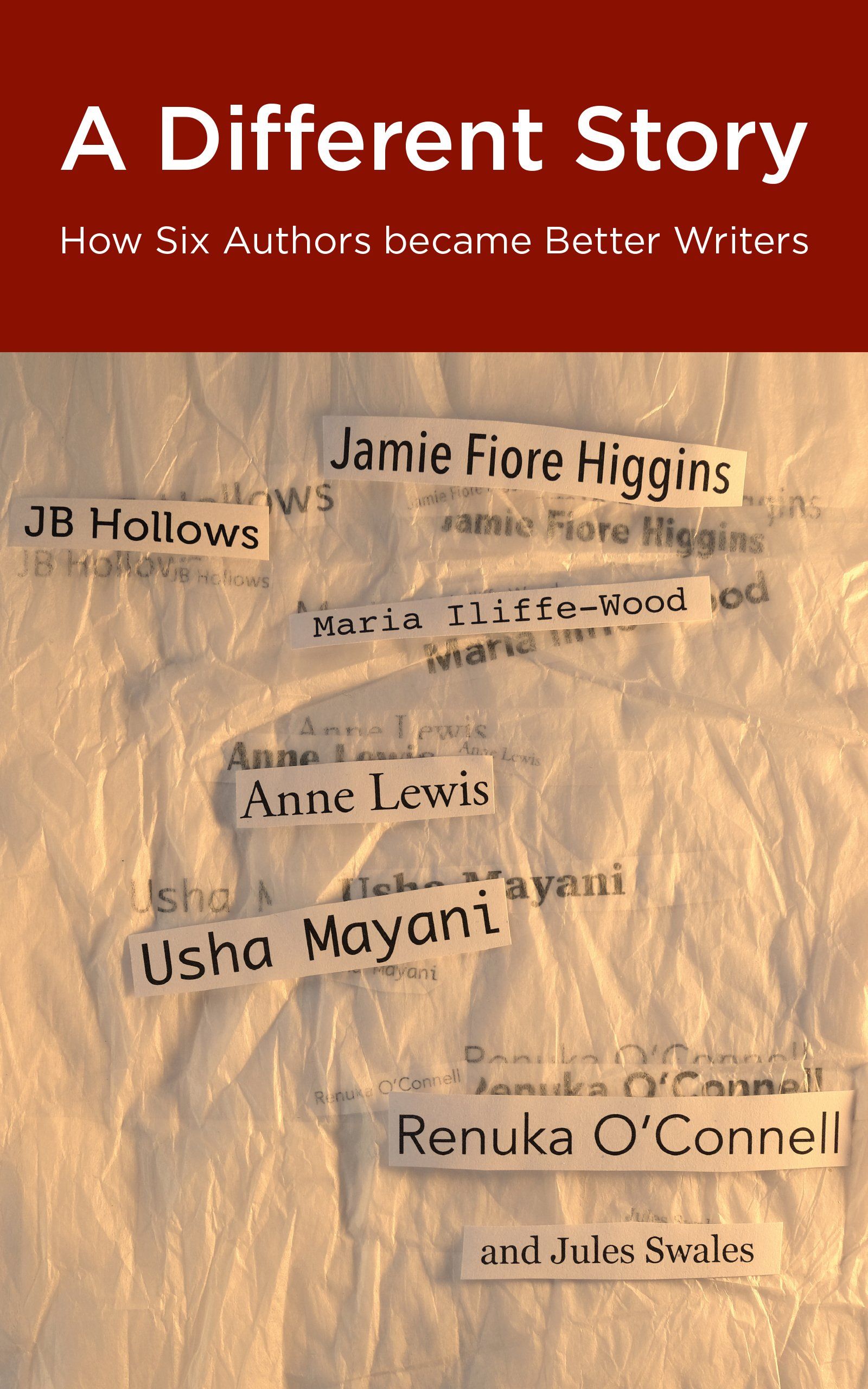Blog Layout
Write like you talk, then edit
Maria Iliffe-Wood • Aug 14, 2020
Why the fact that we can edit is good news for writers.
A couple of weeks ago, I did a little experiment for the writers in my Writer’s Group Coaching Programme.
I had talked about ‘write like you talk’ and I wanted to show the group what I meant.
There was also something I was curious about for myself. I’d learned to write like I talk a couple of years ago and I wondered whether I do that now or whether I just thought I did.
I recorded a conversation with one of the group and transcribed it.
Here is a short section of the conversation:
“It’s like, I used to have so much self-judgement, self-criticism, berate myself for the smallest things. I had massive expectations of myself that I could never ever achieve. And I didn’t even know I was doing that. That I’d set the bar so high, so high that I couldn’t possibly achieve it and then beat myself up for not achieving it. I’d get close sometimes but you’re never ever going to reach that bar, and then you beat yourself up for it, so what’s happened for me, is that when I catch myself with those expectations of myself, because they’ve not disappeared, I’m kinder to myself. I don’t live in that judgment and criticism of myself all the time anywhere near as much as I used to and I think what I didn’t realise is just how much I did live in that self-judgment and self-criticism. But coming from a place that is much kinder, being much kinder to myself, knowing that all that judgment and criticism is not real anyway, it just makes my life, my internal life a whole lot easier.”
Believe it or not the conversation was profound and interesting, but in print it looks like a ramble. I found that I repeat myself… a lot, and I leave a lot of sentences hanging in mid-air and I go around the houses. When I first started writing like I talk, this is what my writing looked like too!
I think anyone would agree, that I wouldn’t want to publish this, well not if I want the reader to stay interested in what I had to say next!
What the experiment highlighted is the importance of editing.
What many people don’t realise when they first start on their journey to write, is that the first draft is always just that, a first draft. It’s very unusual to write something that is crafted well enough to publish straight away. Ask any famous author and all of them will tell you how important it is to edit your work, and how much time they spend on it!
So here is an edited version of the section above:
“I used to have so much self-judgement and self-criticism, I would berate myself for the smallest things. I had massive expectations of myself that I could never achieve. And I didn’t know I was doing that. I’d set the standard so high, then beat myself up because I hadn’t got there. No matter how close I got to the bar I was never going to reach it. Those expectations haven’t disappeared, but now I see them for what they are and I’m kinder to myself.
It’s not until now, when I look back, that I realise how much I lived in self-judgment and self-criticism and how much that distorted my life. Now I know that all that thinking is not real, I don’t make it the centre of my attention and that makes my life, my internal life, a whole lot easier.”
This has had a very simple edit. You will notice that it’s shorter. I’ve taken about forty words out of it. It still sounds like my voice, but it is tighter. I’ve taken out the repetition and some of the words that we say, that don’t add anything, like ‘like’ and ‘just’ and ‘even’ and “ever”.
This is good news because when we write, we don’t need to worry about how it comes out, whether it’s good enough, whether anyone will want to read it, because we know that we will edit it before anyone else gets to set eyes on it.
You might also notice that I’ve not added words to make it sound more intelligent. For example, if I wanted to sound more ‘professional’ I might have written something like:
‘In the present moment, when I contemplate and reflect on the words and deeds of my past life experience, I have the profoundly deep realization that I inhabited a world of self-judgement.’
For me the simplicity of the words that I use when I talk, resonates more with the reader and I hope that maybe now you would like to hear more of what I have to say.
This is a very simple example, designed to emphasise that our own voice is more powerful than most people realise. I often think my writing is mundane, only to receive great feedback, that is true for a lot of people.
In answer to my own question, I realised that whilst I don’t write exactly how I talk, my voice is now loud and clear in my work.
I wouldn’t write a whole book in this way, that would be like an artist who uses only black and white in his paintings, it could be a great painting, but most people want more colour in their art. I would add tonal dynamics to give the reader a range of experiences as they read, but my voice is the seam that runs through the whole thing, like a thread that keeps it stitched together.
If you would like to receive these blogs together with inspirations and helpful resources then sign up to receive my newsletter.
The next writer's group coaching programme
will start on 24th August 2020 at 2pm. There are still places available if you would like to join us.

By Maria Iliffe-Wood
•
30 Nov, 2022
I remember myself as a young woman. Unblemished skin, silk mahogany hair and a slender figure. I yearned for longer legs and would say there was a six-foot supermodel h idden, crouched and stuffed, in this diminutive form, and it wanted to be unleashed. I’m an old woman now, with the vagaries of an ageing body and multiple textures in my hair. Inside I’m a blessed spaciousness but nobody gets to see that. All they see is a cadaver of gelatinous pulp and wretched wrinkles that forge chasms across my chin, along with the tufts of dried grass that make their acquaintance with the soft down that has always existed there. Eyebrows that were once slight and refined, now charge their way towards my hairline. Tweezers that only had an outing once in a blue moon, now have a daily excursion in front of the ten times magnification mirror. Twenty-twenty vision got lost somewhere in the ether and can only be seen now with the benefit of hindsight. I turn my back to my gorgeous younger self, not wanting to abject myself to what I have lost. My eyes fix only on what lies ahead, even though time and space is short compared to that behind me. I console myself with the knowledge of how my younger life felt. Scared, scorned, scarified by my imaginings. I lived a life belied by the external visage. The outer skin, pure and faultless, the inside tormented. My mind, scourged by questions and demands, never allowed me to feel good enough. My mind, fearful and hesitant, never allowed me to step forward in confidence. My mind, a battle ground, a war that raged between two selves, never allowed me any compassion for my tortured soul. From that beleaguered mind, I was blind to the beauty of my physical form. Some days I pretend I’d give my hind teeth to look like I did again, but I’d not exchange it, not in a million years, for the exquisite tenderness I now harbour deep inside. Unless of course you can offer me a pair of longer legs.

By Maria Iliffe-Wood
•
27 Jan, 2022
I’ve written a few times this week and still I haven’t done the exercise right. It’s harder than it sounds. The others made it look so easy. I start to go down the route of what’s wrong with me but I block that off before it takes hold. I could do a transformation line but that’s not the exercise. So I’ll keep going. I can’t go to class a second time with a weak piece. I’ve got a reputation to uphold. There’s a Jericho trumpet in the morass that swipes left, the scream aghast as Johnny be good begets temptation to raise an army and shut me down before I even get started. I should be used to this by now, but switching class has done something to me. It’s rattled a cage I’d forgotten was there. I try to push it to one side but I can feel it in the pit of my stomach, no matter what I tell myself. I want to quiet the noise, but I can taste it. I am so tempted to jump into the next exercise. But I need to keep going. My mind keeps throwing things at me. I need to ignore them. I tell myself to persevere. There’s an argument going on in my head. My ego wants me to use all my tricks so I can look good, but if I do that I won’t be teacher’s pet. I want to look good for my tutor and the other students. If I don’t do the exercise I won’t look good to anyone. Looking good won’t do me any favours. Yet it still pushes me to look good. Forget looking good. So I’ll write a load of crap and face the consequences. I can see this is more drivel. It’s been the same every day this week. It’s not worth taking anything to class. Well, if nothing else I’ve stuck to the exercise this time. I should’ve done the musicians class. I bet they’re having an easier time of it than I am. I’m nearly at the end of my two pages and it’s my last chance saloon for whistles and bells and elephant’s trumpets. I’ll waddle onto the gangplank, in my barbed wire pants, shove the weeks old bread into the mouth of the knotted talisman and fingers crossed, I hope to do or die. ************** If you like this blog please share on your favourite social media. :)

By Maria Iliffe-Wood
•
15 Nov, 2021
I sit in this chair and look out the window. I hear the washing machine churn the laundry in the kitchen. I watch the leaves on the tree turn from green, to red, to orange, to brown, to grey and then fall off. I imagine they carpet the lawn with their tawny hues. I don’t see the ground. I make up half the story, to compensate for what I can’t see, from this chair. People walk outside. Up and down the street. I imagine them going to work, to school, to play, or to the theatre, or the cinema, to a football match or a round of golf. I sit in this chair and make up stories about them. Cars come and go. I imagine them arriving at their destination, breaking down on the motorway, crashing into a lamppost, being lambasted by a forty foot artic lorry. I imagine the passengers end up in a chair, much like this one. I wave at the postman as he passes by my window. He doesn’t stop. No gifts, or parcels, cards or letters from friends, or family, or the double glazing firm that wants to sell me a new set of windows. I want to ask him about his wife, his kids, his work, his life. I know nothing about him, nor him about me, other than I’m the woman who sits in the chair and looks out of the window. He doesn’t notice the look on my face when he passes by without a glance. Next door’s cat comes into the garden. I watch her wander around. She sniffs at the plants, eats the grass, poos in the gravel at the edge of the path. I’d love her to wander in and sit on my lap, while I sit in this chair. But like everyone else, she wanders by the open door, with ne’er a look. The washing machine stops. Someone will empty it later, when they arrive to clean me up, get me dressed, tidy up around me. “I can’t stop to chat.” The nurse will say. “I’ve got too much to do, too many people to get around to, too many others to care for.” Care. That’s what she calls it. No cup of tea. No gossip about the neighbours. No catch up with what’s going on in her life. I’d love to hear what else she’s up to. She knows what I do. I sit in this chair.

By Maria Iliffe-Wood
•
09 Sep, 2021
I have fought long and hard for my self-worth. I will not give it up, not for nothing or no-one. Behind this guileless exterior lies a steel rod. I am not to be messed with. I will not lay down to take a mouthful of crud, swilled down with horse-shit and a big dollop of how’s your father. I will not be sniffed at, sneezed over, coughed on. I will not be spat on from a great height. This backbone of mine will not squelch, will not fold in on itself, will not curl into a foetal position in the face of exhorted attempts at my denigration. My dignity is rock solid. Arrows bounce off this impervious exterior. Nothing and no-one will get past the perimeter of my mind to cause untold damage inside. I know who I am. I am proud of who I am. I am who I am. I protect who I am. This protectress is the strongest part of me. The part that stands up to fight when the chips are down. The part that refuses to accept scattergun accusations. The part that surfaces once in a blue moon. The part I’ve always relied on, when I’m in a tight spot, with my back to the wall. It sports a Kevlar jacket, with Doc Martin boots, and a Boadicea shield, yet it has a pink fluffy boa around its collar. It won’t take any punches, nor does it hold any prisoners. All the best parts of me are rolled into this one, corralled into action, at my most strident. It’s the cast iron core of me. I will never give it up. ************************ This poem was conceived during the Wild Dark and Passionate, Level Seven of my writing classes with Jules Swales.

By Maria Iliffe-Wood
•
16 May, 2021
I’m fifty-nine next week. Dad died seven weeks after his fifty-ninth birthday. His dad died at fifty-one. Did Dad wonder what he should do different in those next few weeks, or did he just flip it aside and pay it no mind and live his life as he normally did and let the chips fall where they may. Did he ask himself how he could make these last few weeks more precious? Did he decide to tell everyone he loved that he loved them or did he just trust that they knew that already? Did he go all out to be present to every moment of every day and notice the little things that matter like milk and sugar on his cornflakes family photos on top of the piano a roof over his head Jesus in his heart. Did he say to himself, or to God ‘Please let me have a few more years’ and did God answer and that’s why he lived to fifty-nine instead of fifty-one. What would happen if I pray the same prayer. Will I get a few more years? Image downloaded from canva.com
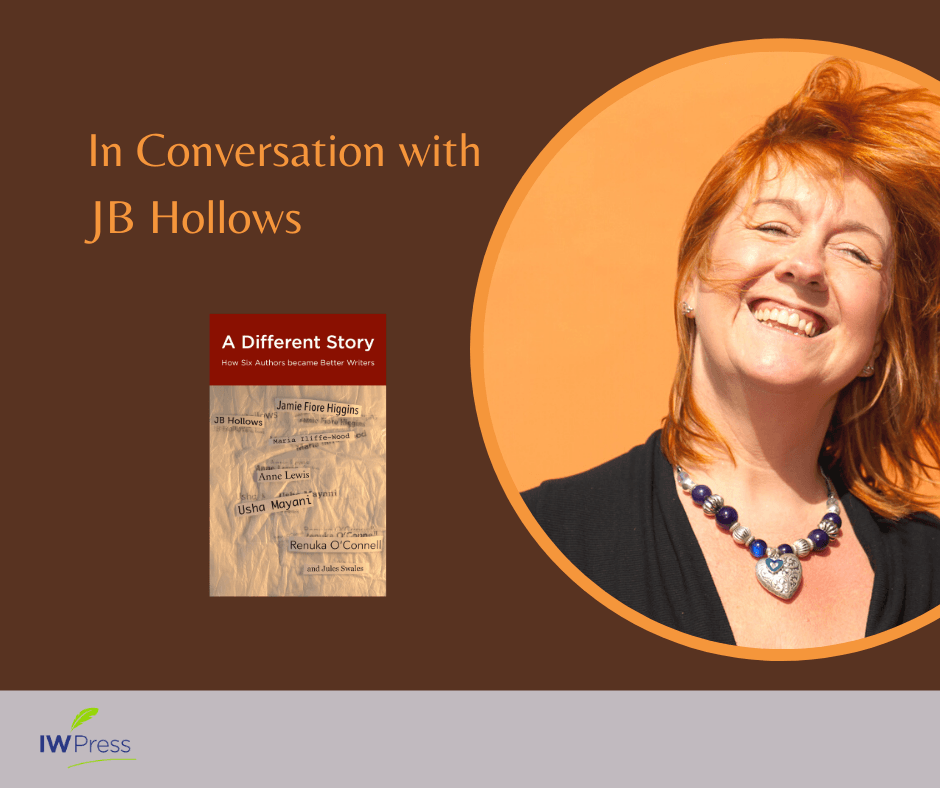
By Maria Iliffe-Wood
•
14 Apr, 2021
Jacqueline Hollows was the instigator of the book A Different Story. In this informal interview with Maria Iliffe-Wood, Jacqueline talks about how her interest in the 'business' of publishing a book led her to suggest the idea of publishing A Different Story, How Six Authors became Better Writers. You can read more of Jacqueline's writing and find out what else she's up to in the world on her website .
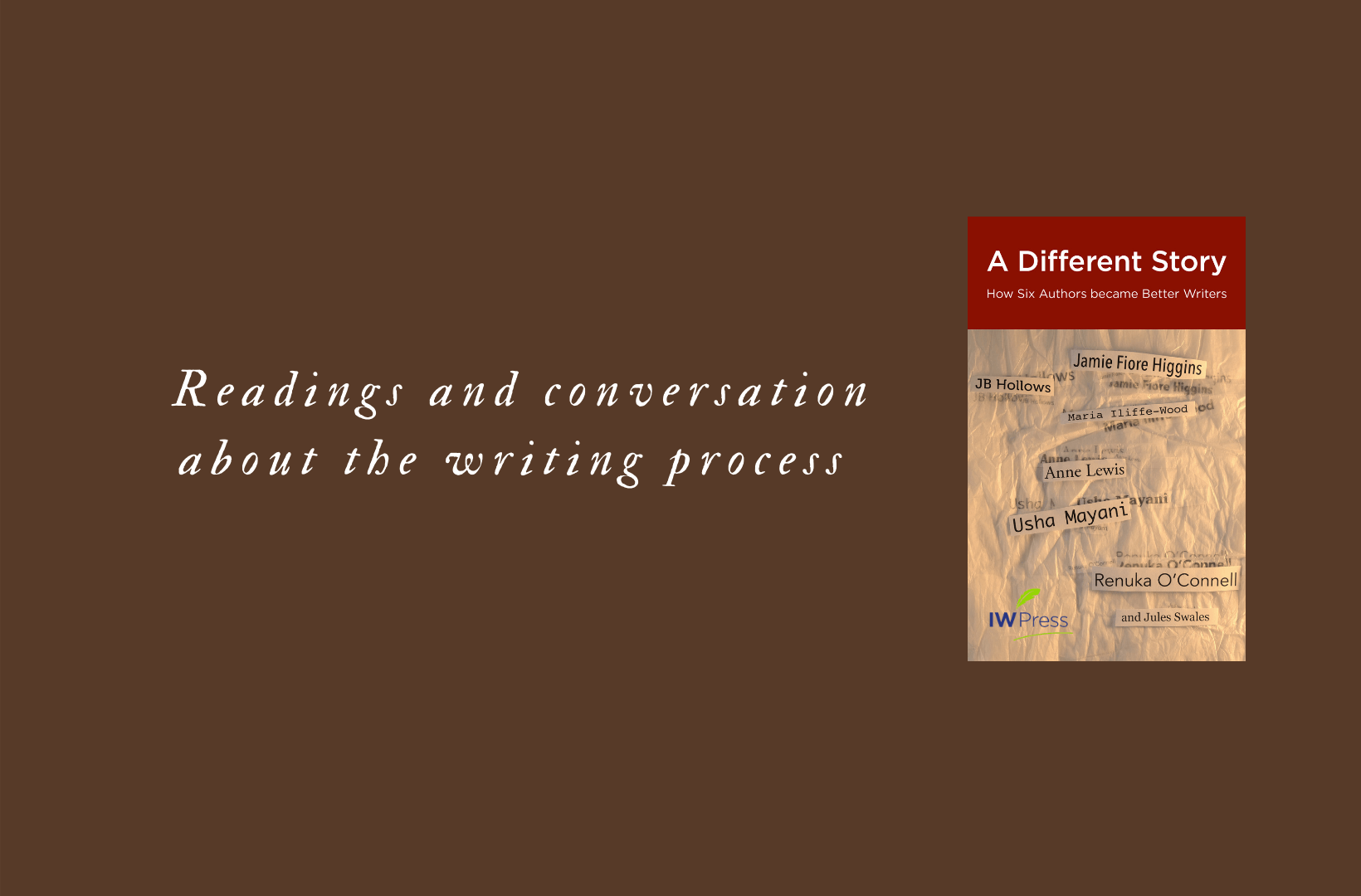
By Maria Iliffe-Wood
•
06 Apr, 2021
The six contributing authors to A Different Story, read a piece from the book then answer questions about their writing process. Questions like: What was your process when you sat down to write these pieces? Are the stories true? How did you manage to remember so much detail? Jules Swales, the method writing teacher who designed the exercises and explained each one in the book also offers a perspective on her teaching of method writing and its impact. You can buy a copy of the book here , and all author royalties will go to Storybook Dads .
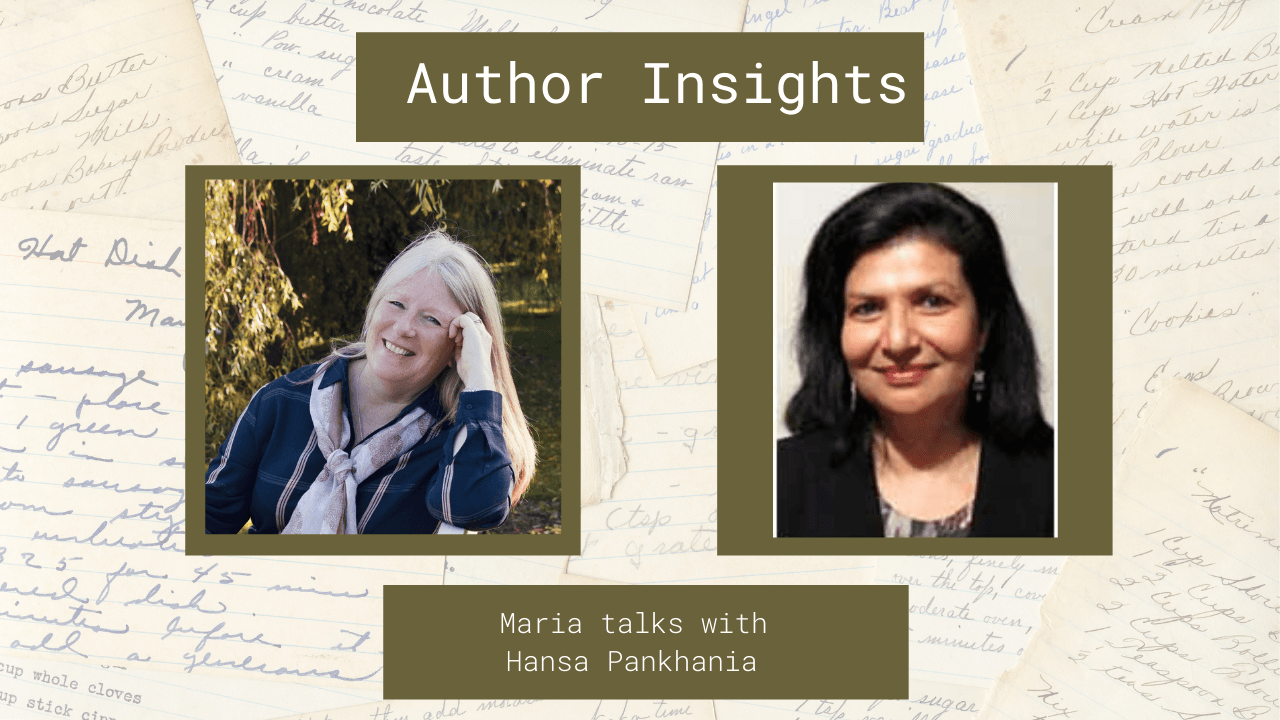
By Maria Iliffe-Wood
•
10 Feb, 2021
Hansa Pankhania is a mother, a grandmother and a wellbeing coach who can’t quite believe she has published seven books, and she has two more on the way. I loved this conversation with Hansa, especially when she talked about where the inspiration came from for each of her books. She has written business/ wellbeing books, a memoir and children’s books and for each one the idea of the book came in a different way. Hansa was an author who was overwhelmed with the idea of marketing when she published her first book, but she realised that you can’t get away from it. However, she learned with every book she published, and even though it’s not her favourite part of the process, it is something that she is now more comfortable with. Like all the authors I have talked to, she has her own gremlins and her way of dealing with them is to reach out to other people. Either her publishing team, her editors or the writing community. You can find out more about Hansa, and her work, on he r website , and although her books are available on Amazon, I recommend you buy your copies from the website as she has a special offers on there, and some free downloads.
Let's Stay in Touch
Email: maria@iliffe-wood.co.uk
Cookie Policy Maria Iliffe-Wood All Rights Reserved 2022

